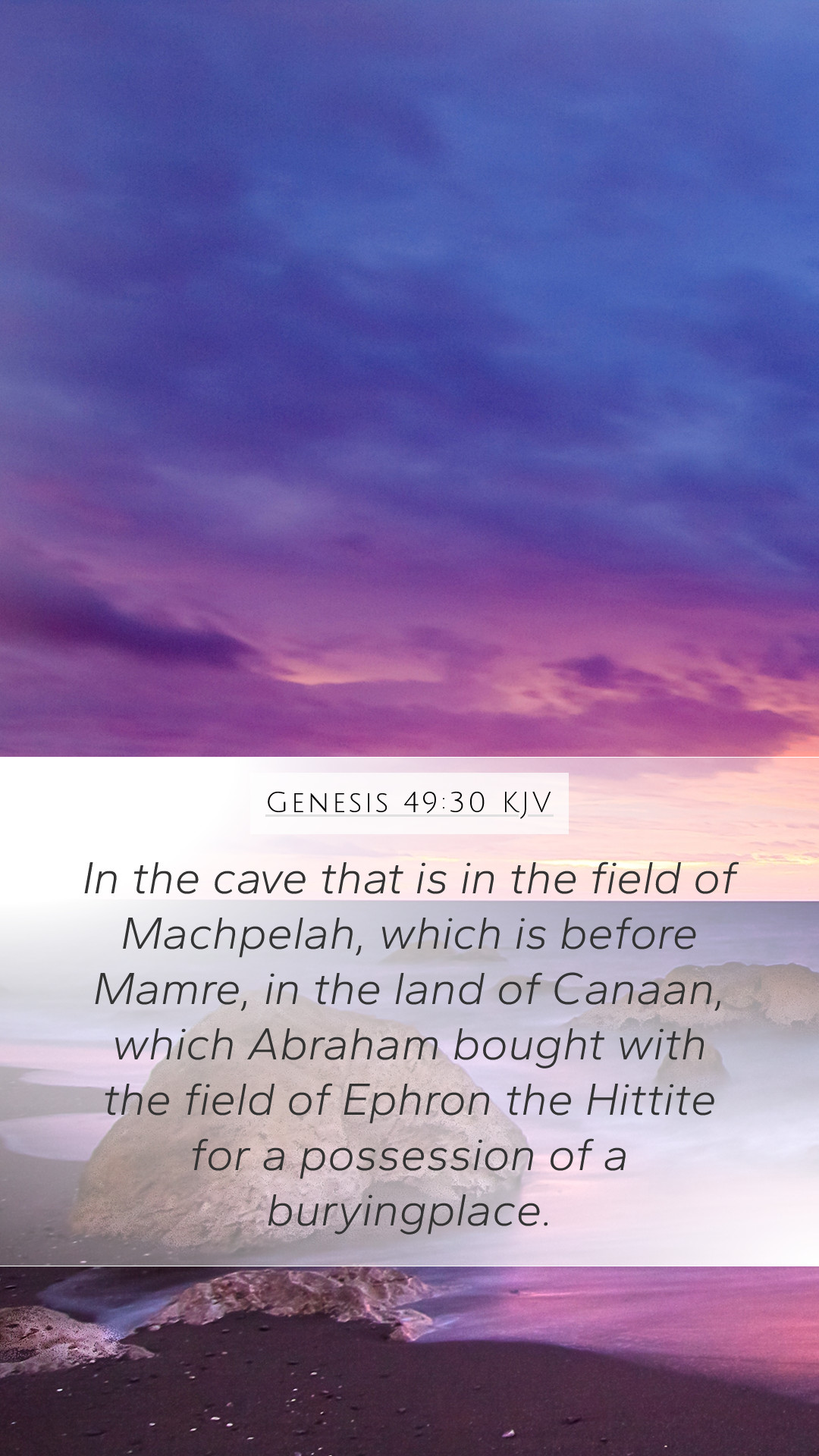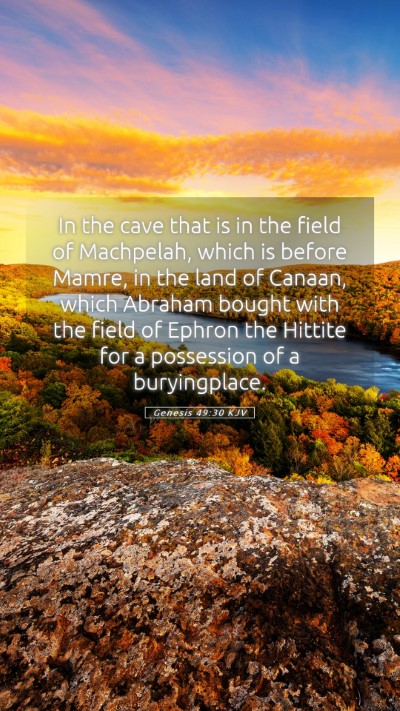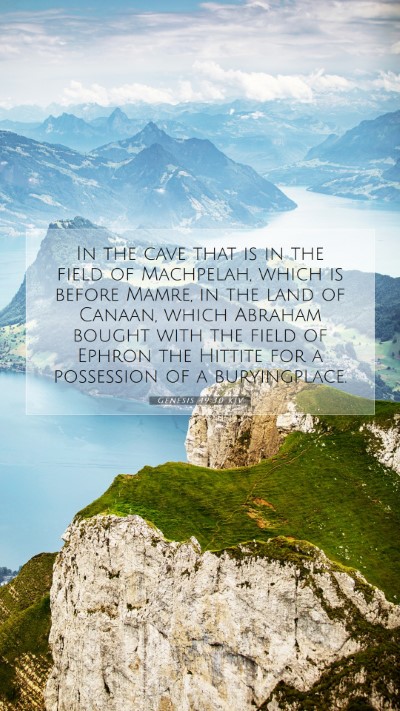Understanding Genesis 49:30
Genesis 49:30 reads: "In the cave that is in the field of Machpelah, which is before Mamre, in the land of Canaan, which Abraham bought with the field of Ephron the Hittite for a possession of a buryingplace."
This verse is part of Jacob's final blessings to his sons and his instructions regarding his burial. Below, we explore a deeper analysis and interpretations from various public domain commentaries such as those by Matthew Henry, Albert Barnes, and Adam Clarke.
Bible Verse Analysis
In this passage, Jacob emphasizes the importance of his burial place, which has spiritual and historical significance. The choice of Machpelah connects to the covenant promises to Abraham regarding the land of Canaan.
Matthew Henry's Commentary
Matthew Henry reflects on the significance of Jacob's burial instructions, underlining that this was not merely about physical resting place but also about securing a home in the Promised Land. The mention of Abraham's purchase signifies that God's promises were not only spiritual but also tangible, pertaining to the land his descendants would inherit.
Albert Barnes' Commentary
Albert Barnes notes that Jacob desired to be buried in the land that was promised to his forefathers. This reflects a deep-seated belief in God’s covenant and the importance of maintaining a connection to the land, which would belong to his descendants. He emphasizes that such details reinforce the assurance of God's promises regarding the land and the lineage of Israel.
Adam Clarke's Commentary
Adam Clarke examines the historical context of Machpelah and highlights that it symbolizes a place of rest and hope for future resurrection. Clarke also notes the cultural practices regarding burial during Jacob’s time, emphasizing the familial ties and the significance of setting a landmark for future generations of Israel.
Key Insights
- Significance of the Land: The mention of Canaan highlights the covenant made with Abraham, where land ownership plays a central role in the identity of God's chosen people.
- Historical Context: The cave of Machpelah is more than just a burial site; it represents a divine promise fulfilled through generations.
- Spiritual Legacy: Jacob’s burial instructions symbolize a transition of faith and the continuity of God's promises to his family.
- Connection to Promises: The purchase of this land is an acknowledgment of God's recurrent theme of establishing His covenant with humanity.
Related Bible Cross References
- Genesis 23:19 - Abraham's purchase of the cave of Machpelah.
- Genesis 12:7 - The promise of the land to Abraham's descendants.
- Genesis 28:13-15 - God’s reaffirmation of the promise made to Jacob.
- Exodus 13:19 - Moses taking Joseph's bones to the Promised Land.
- Hebrews 11:9-10 - Faith of Abraham, Isaac, and Jacob in looking forward to the city which has foundations.
Conclusion
Genesis 49:30 carries profound implications for the understanding of God's promises and the importance of land in the narrative of the Hebrew Bible. By elucidating the meaning of this verse through various commentaries, we gain a richer understanding of Scripture.
This analysis offers Bible study insights into how to interpret Bible verses, especially in the context of historical and spiritual significance. Whether you are part of a bible study group or engaging in online bible study, understanding the historical relationship between God and His people can enhance your bible study resources and make each bible study lesson meaningful.


